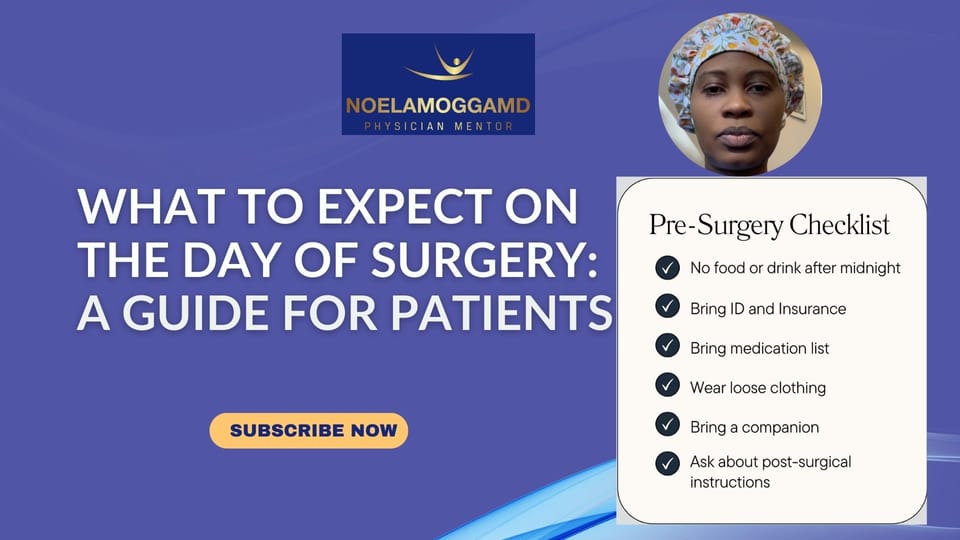What to Expect on the Day of Surgery: A Guide for Patients

Preparing for surgery can feel overwhelming, but knowing what to expect can help ease your nerves. In this guide, I’ll walk you through the essential steps to prepare for your surgery day, from pre-surgery instructions to what to bring and wear. Let’s dive in!
Pre-Surgery Instructions
Your surgical team will provide you with a list of instructions to follow before your procedure. These guidelines are crucial for your safety and the success of your surgery.
Fasting Guidelines
The American Society of Anesthesiologists (ASA) recommends fasting for at least 8 hours before surgery. Typically, you’ll be instructed to have nothing by mouth after midnight, except for certain medications that you’re allowed to take with a small sip of water.
It’s important to check with your surgical team about which medications are permitted and which ones you should avoid. This will depend on the type of surgery, your surgeon’s preferences, and your medical history.
Why fasting matters: Even if your surgery is scheduled for later in the day, you may be moved up in the schedule if earlier patients don’t show up. If you haven’t fasted properly, your surgery may need to be delayed.
Watch Video on Youtube What to expect on the Day of Surgery
What to Wear on Surgery Day
Choosing the right clothing can make your surgery day smoother. Here’s what to keep in mind:
- Loose, comfortable clothing: Wear something easy to remove and put back on after your procedure.
- Leave jewelry and valuables at home: Most surgical facilities provide a secure place to store your belongings, or they’ll give them to a family member.
- Remove piercings: This includes hidden piercings like belly button, tongue, nose, or eyebrow rings. These can interfere with medical equipment and increase the risk of burns during surgery.
- Avoid perfume and lotion:Perfumes can trigger allergies in your medical team, and lotions can prevent medical adhesives (like EKG stickers) from sticking properly.
- Remove contact lenses: Contacts can dry out and cause corneal injuries during surgery. If you wear hearing aids or dental appliances, you’ll be asked to remove them before going into the operating room.
Emotional Support and Comfort
It’s completely normal to feel nervous before surgery. Here are some ways to ease your anxiety:
- Ask questions: Don’t hesitate to ask your surgical team anything you’re unsure about.
- Bring comfort items: Consider bringing something that helps you relax, like a religious text, a soft pillow, or music to listen to while waiting.
- Chaplain services: Many hospitals offer chaplain or religious advisory services. If you’d like to speak with someone, let the hospital know in advance.
What to Bring with You
For elective surgeries where you’ll go home the same day, here’s a checklist of what to bring:
1. A responsible adult: You’ll need someone to take you home and monitor you in the hours after surgery. This is non-negotiable for your safety.
2. ID, insurance card, and payment method: Bring your identification, insurance information, and a credit card in case there’s a balance due on the day of surgery.
3. Comfort items: As mentioned earlier, anything that helps you feel calm and relaxed.
In Conclusion
Preparing for surgery doesn’t have to be stressful. By following these guidelines, you’ll be well-equipped for a smooth experience. Remember, your surgical team is there to support you every step of the way.
In the next chapter, we’ll discuss the role of your anesthesiologist and what to expect during the anesthesia process. If you found this guide helpful, feel free to leave a comment or share it with others who might benefit.
*Disclaimer: This is a general overview and not meant to replace specific instructions from your surgical team.*
#SurgeryPreparation #PatientGuide #Anesthesiology #SurgeryDay #HealthcareTips



Comments ()